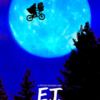 Starring: Naomi Watts, Billy Howle and Denis O’Hare
Starring: Naomi Watts, Billy Howle and Denis O’Hare
Directed by: Małgorzata Szumowska
Rated: R
Running Time: 104 minutes
Bleecker Street
I’m not very vocal about my side gig as a film and pop-culture critic. I’ve found that once people find out, they expect me to have watched every movie they’ve watched or for me to have fallen in line with critical consensus or mainstream opinions about said film. That’s a different topic altogether, but I also encounter the problem of having to divulge more information than most people on whether or not I like a film. And sometimes I just like something or don’t like something. It’s nice not having to think too hard about why I feel a certain way and instead just letting those emotions be. But in film criticism, I have to dig into why I felt the way I feel after a movie. So why did a well-shot, breathtaking film like “Infinite Storm” not resonate with me?
The film begins with Pam Bales (Watts) scaling Mount Washington in New Hampshire in mid-October. Visually, we see that she’s experienced and smart. She leaves notes about her whereabouts on her car windshield as she sets out alone into the wilderness, with extra clothes, food and supplies to keep her warm, safe and well-fed if something awful arises. It’s gray and chilly looking when she sets out, but by the time she starts to get towards the peak, the conditions have turned into a white out blizzard. While she isn’t concerned, the concerns begin to arise when she finds footprints in the snow that lead to a non-verbal man half dead in the snow.
“John” (Howle) isn’t his name, but Pam refers to him by that in the hopes of eliciting some kind of response or reaction. None follow. So in the midst of the blinding snow, Pam now finds herself having to lug along the equivalent of a corpse back down the treacherous mountain she just scaled. This all sounds fascinating and at times was, but none of it clicked when all was said and done. So I go back to the problem I have as a film critic, trying to pinpoint what it was that this movie failed to do for me. I wish I could just move on and say that it didn’t work for me, but alas I’m the one having to convince you on what you should be spending your time and money on.
In an attempt to figure it out, I read the article that this movie is based on. The descriptions of the unforgiving Mount Washington in the article are reflected well in “Infinite Storm,” but I never get a feeling for who Pam is, from the movie and article. I do get way more out of who “John” is from the article, whereas the film merely hints at it. Interestingly enough, the film focuses on the emotions of Pam while the article is more of a gut punch reveal about “John”. So who is “Infinite Storm” about? The film is about Pam, which isn’t a knock, she’s an individual who was in an extreme situation and acted with bravery. The article, while written from Pam’s experiences, feels like it’s more about life and emotions in general, depicted through “John.” In fact, the ending is drastically different between real-life and the film. I don’t want to say I have some kind of psychic level of intuition, but maybe the film shouldn’t have tinkered with what actually happened. I understand the need to make Pam the focus of the film, but I also understand the morals in this story and the moral necessity is about “John,” not about Pam. Unfortunately, there is no context unless you read the article and watch the film. So if you just watch the film, you miss a lot of context and what context you do get is a brief 10 minutes at the end of the film that feels more like an incomplete epilogue.
“Infinite Storm,” while visually engaging, never makes us care about the characters. Not even the based on a true story attachment at the beginning of the film ever makes us feel like elements of the story aren’t contrived. The elements appear to be manufactured as opposed to the actual harrowing journey. For instance, “John” disappears after falling into a stream, yet miraculously appears later seemingly unharmed. The article tells no such tall tale like this. The basis of “Infinite Storm” may be true, but its emotional core appears to be built on false pretenses.


